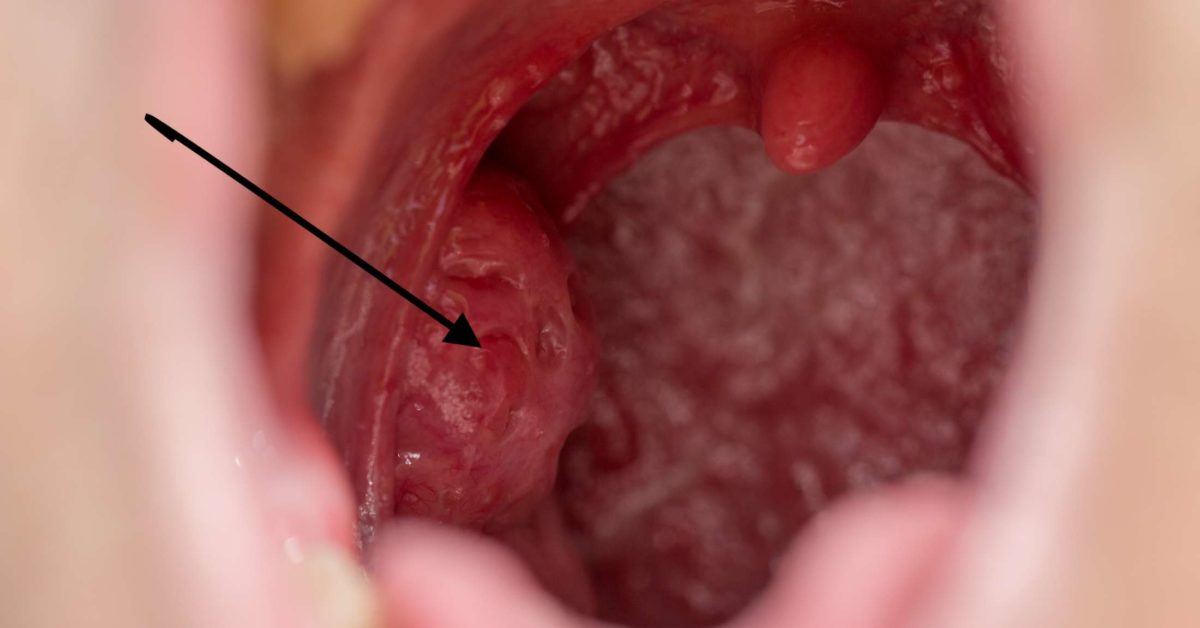
If you ever coughed up a small, white, smelly lump from the back of your throat, you might have tonsil stones. Tonsil stones, also known as tonsilloliths, are clusters of calcified material that form on the tonsils. They may cause bad breath, sore throat, and difficulty swallowing, but they are usually harmless. However, in some cases, tonsil stones can lead to complications, such as infection, abscess, and cancer. In this article, we will discuss the link between bloody tonsil stones and cancer, and what you need to know to prevent and treat them.
What Are Bloody Tonsil Stones?

Bloody tonsil stones are tonsil stones that contain blood or cause bleeding. They are rare, but they can be a sign of an underlying health problem, such as cancer. The bleeding may be due to trauma, inflammation, infection, or malignancy. If you have bloody tonsil stones, you should see a doctor to rule out cancer and other serious conditions.
What Is Tonsil Cancer?

Tonsil cancer, also known as tonsil lymphoma or tonsil carcinoma, is a type of head and neck cancer that affects the tonsils. It is more common in men than women, and it usually occurs in people over 50 years old. The symptoms of tonsil cancer include sore throat, difficulty swallowing, ear pain, cough, bad breath, and swollen lymph nodes in the neck. Tonsil cancer can spread to other parts of the body, such as the lymph nodes, lungs, liver, and bones. If left untreated, tonsil cancer can be life-threatening.
What Causes Tonsil Cancer?

The exact cause of tonsil cancer is unknown, but there are several risk factors that can increase your chances of developing it. These include:
- Smoking and tobacco use
- Excessive alcohol consumption
- Human papillomavirus (HPV) infection
- Weakened immune system
- Genetic predisposition
If you have any of these risk factors, you should be aware of the signs and symptoms of tonsil cancer, and get regular check-ups to detect it early.
How Are Tonsil Stones and Cancer Related?

While tonsil stones themselves are not a direct cause of cancer, they can be a symptom of tonsil cancer. If you have bloody tonsil stones, it may indicate that you have a cancerous tumor in your tonsils. The bleeding may be due to the erosion of blood vessels by the tumor or the invasion of cancer cells into the blood vessels. However, not all tonsil stones are cancerous, and not all cases of tonsil cancer involve tonsil stones. Therefore, it is important to get a medical diagnosis to determine the cause of the bleeding and rule out cancer or other serious conditions.
How to Prevent and Treat Tonsil Stones and Cancer?

The best way to prevent tonsil stones and cancer is to maintain good oral hygiene and a healthy lifestyle. You should brush your teeth twice a day, floss daily, and gargle with saltwater or mouthwash to remove bacteria and debris from your mouth. You should also avoid smoking and excessive alcohol consumption, and eat a balanced diet rich in fruits and vegetables.
If you have tonsil stones, you can try to remove them with a cotton swab, a water pick, or a curette. You can also use antibiotics or steroids to reduce the inflammation and infection. If you have tonsil cancer, your treatment options may include surgery, radiation therapy, chemotherapy, or a combination of these. The choice of treatment depends on the stage and location of the cancer, as well as your overall health and preferences.
Conclusion
Bloody tonsil stones are a rare but potentially serious condition that may indicate tonsil cancer. If you have bloody tonsil stones, you should seek medical attention to rule out cancer and other underlying health problems. The best way to prevent tonsil stones and cancer is to maintain good oral hygiene and a healthy lifestyle. If you have tonsil stones or cancer, you should talk to your doctor about your treatment options and follow their advice to improve your health and quality of life.